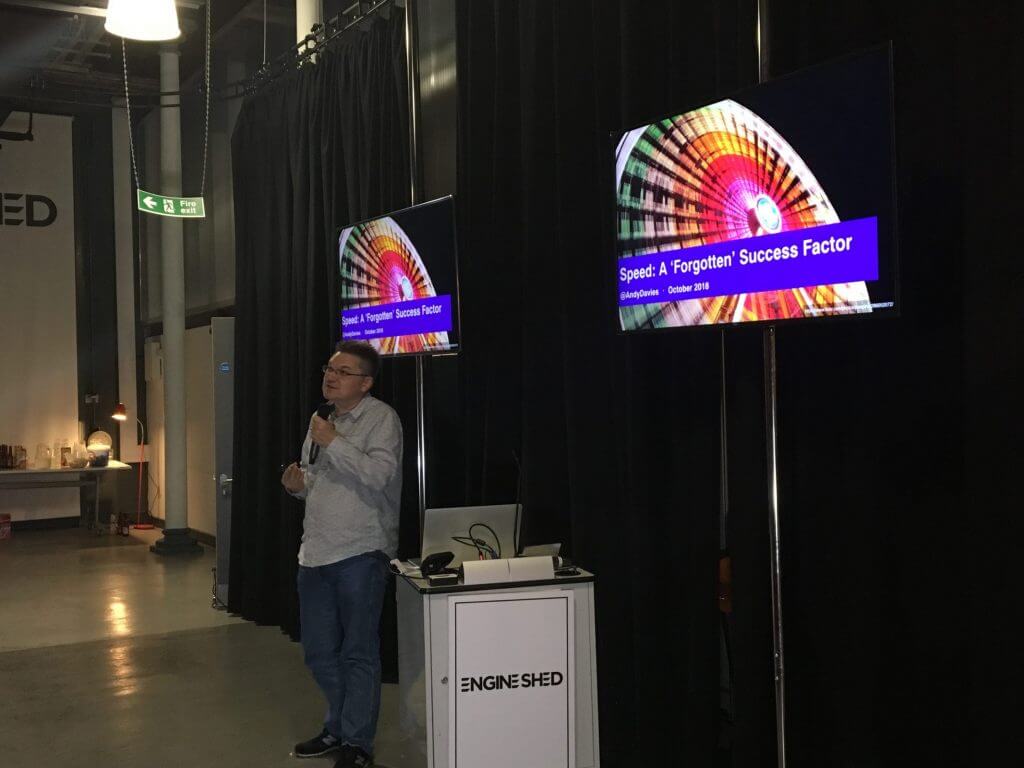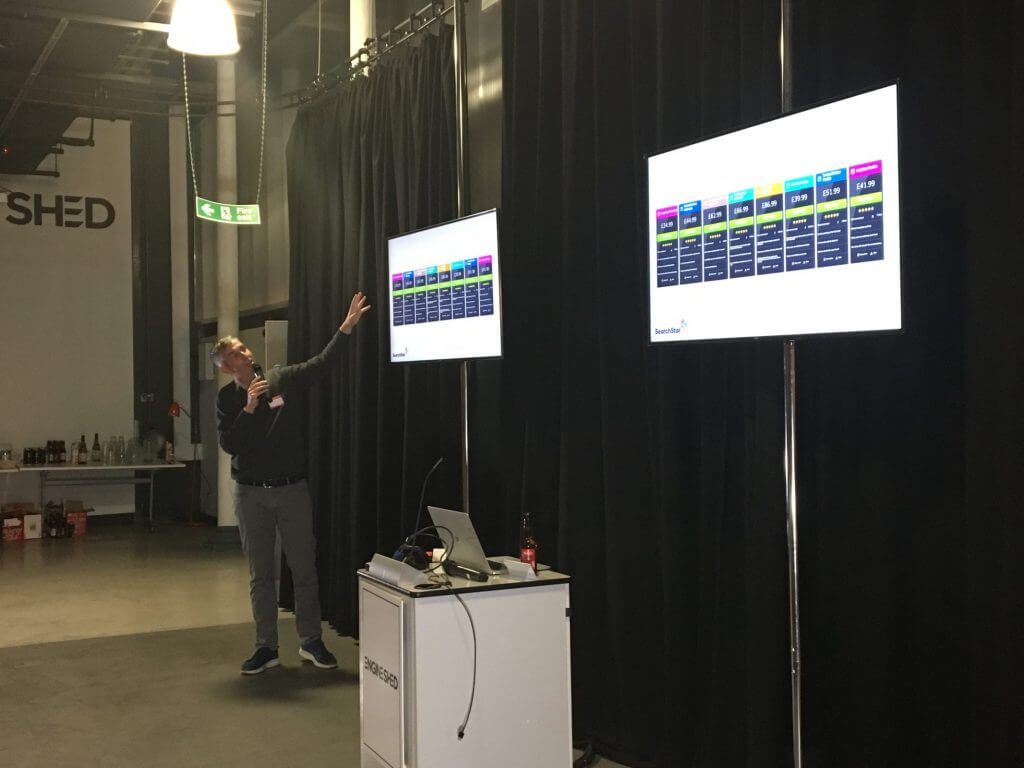Did you miss Design/Build/Market: Performance Matters last week? No problem. Here are the highlights from our speakers’ talks.
Andy Davies is an independent web consultant and author of A Pocket Guide To Web Performance. Dan Fallon is the founder of award-winning digital agency Search Star Ltd. Both spoke at last week’s DBM meetup on the theme of web performance.
Here’s our summary of their advice for improving your website’s speed and conversions.
Andy’s tips

Waiting requires higher concentration – When a website takes a while to load, it takes more of our focus to stay on task. And it only takes 1/10th of a second for us to notice a delay in a web page loading. Keep loading time as short as possible or your users begin to task-switch and lose interest.
Different visitors have different experiences – There is no real ‘average load speed’ – each user’s load speed will depend on their device, what page they’re on, how far we are in our session etc. You have to consider all these factors and how they intersect.
Improving speed can have a dramatic impact – Speeding up Missguided’s site speed by 4 seconds on Android led to a profit increase of 26%. But it also led to more page views and more engagement from users – which is good for longevity.
‘Loading is an experience in itself. ‘
Don’t think about page load as a static point in time – It’s no about ‘loading’ vs ‘loaded’. Loading is an experience in itself. Think about how to make the page as useful as it can be as fast as possible – and prioritise what content loads first accordingly.
Incremental improvements add up to larger gains – Big wins are satisfying but it’s also worth making the small changes that, overall, can add up to additional improvements in load speed.
Dan’s tips

The average UK website takes 15 seconds to load – If you can get that to under 2 seconds, Google estimates you’ll get at least a 15% higher conversion rate.
Today’s customers are super-empowered – They’re curious, demanding and impatient – they want perfect user experiences. If your site isn’t fast enough they’ll exit your site and click on the next option down.
Web performance is about providing a tight retail experience – Traditional shopkeepers focus on getting people into their shop and convincing them to come back again. Online shopping is no different – improving performance just ensures you don’t lose customers along the way.
‘Improving performance ensures you don’t lose customers along the way.’
Improving your website is a continuous process – Back in the day, you ‘did’ your website every 18 months to 3 years. Now it’s far more common to be constantly iterating it. Schedule continual improvements, rather than relying on big steps.
Ask your customers and clients how you should improve – Get people who use your site to do a ‘critical friend’ session with you. Find out what they don’t like and what you can improve. It’s faster and more effective than trying to work it out yourself.
Design/Build/Market #8: Startups
A massive thank you to everyone who attended DBM#7 Performance Matters last week.
Our next meetup takes place in January 2019, and will be on the theme of startups.
Join our DBM meetup page for updates.